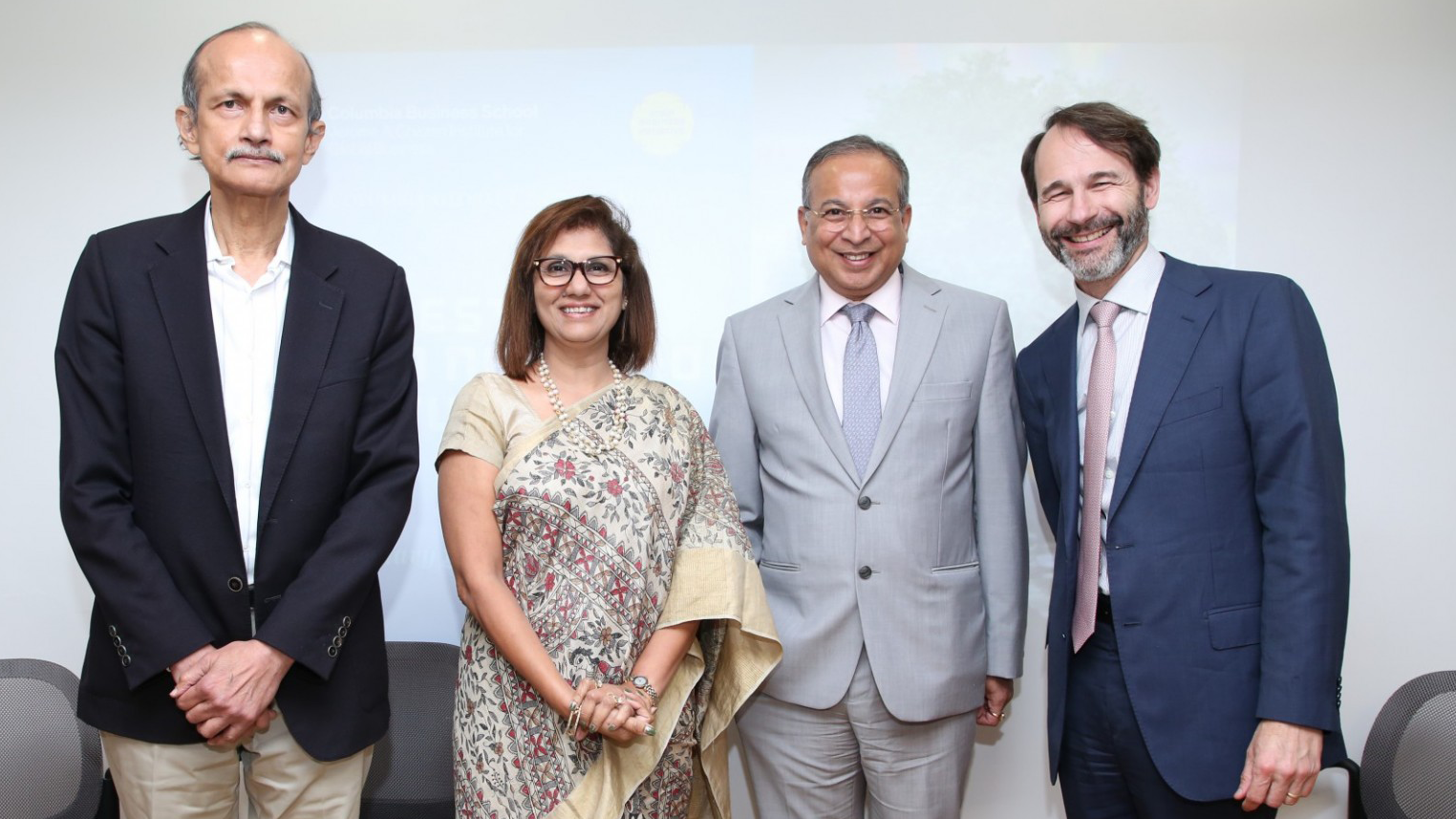Investing in a Net-Zero Future

The most pressing global challenge, climate change, presents a significant risk to investments. Highlights from the Global Risks Report 2023 state that five of the top six long-term risks by severity are climate related. The report further talks about the interplay between climate change, biodiversity loss, and food security and the ensuing large-scale economic ramifications.
Cognizant of the urgency of addressing the rapidly changing climate scenario, Columbia Global Centers | Mumbai has organized a series of targeted seminars focused on achieving net-zero targets for India. On January 12, 2023, the Center organized a panel discussion jointly with the Jerome A. Chazen Institute for Global Business at the Columbia Business School. The session saw participation from diverse stakeholders and facilitated a dialogue on climate change solutions focusing on effective mitigation strategies through investing capital in real and financial assets.
To set the context, Professor Bruce Usher, Chazen Senior Scholar and Professor of Professional Practice at the Columbia Business School, gave insights from his recently published book, Investing in the Era of Climate Change. The book addresses the critical role that investors play in ameliorating the worst impacts of climate change. Following this, Dr. Suresh Sundaresan, Chase Manhattan Bank Foundation Professor of Financial Institutions, Columbia Business School, highlighted how exposure to physical risks, especially heat stress, affects the cost of capital for municipalities, corporations, and equity assets.
The presentations were followed by a fireside chat with Professor Usher, Dr. Sundaresan, and Dr. Praveer Sinha, CEO and Managing Director of Tata Power Company that was moderated by Ms. Namita Vikas, founder and Managing Director of auctusESG.
When asked about strategies for mainstreaming climate financing, Professor Usher pointed to regulatory, reputational, market-based, and technological factors as transitional risks that could be impediments in funding large-scale climate mitigation projects. He further stated that businesses need to realign their models in order to gain the trust of banks and investors. On translating learnings from Global North and Global South to accelerate funding, Professor Usher explained that there is no single strategy that works and each country needs to work out the best option to position its economy and compete to fulfill their sustainability targets. Giving examples, he explained that in Europe, policy regulations including carbon pricing, and taxation have worked well. However, in the United States, incentivization and taxation are being popularized. “Winners of the future would be those who can adapt their business models faster to these uncertain scenarios”, remarked Professor Usher.
Questions around the implications of research on climate risk for financiers in emerging markets were addressed by Professor Sunderesan, who highlighted the importance of micro-level physical risk estimation using advanced data and modeling, and integrating these analyses into credit assessment mechanisms. Giving examples from India, he shared some investment strategies from his research, such as reducing the duration of loans, especially for high risk entities, and managing loan portfolios by having covenants that reduce risks. He also talked about the importance of municipal bonds and their creditworthiness to generate capital for financing climate projects.
Emphasizing the role of new technologies to mitigate climate change, Dr. Praveer Sinha talked about gaining investor confidence by sending out the right message for generating large-scale capital that will fund net-zero targets. He highlighted the importance of creating an ecosystem, wherein it is imperative for companies to invest in new technologies through R&D, and for startups to take on these technologies for popularizing clean energy solutions at all levels. Ending on a positive note for moving capital away from fossil fuels to clean energy sources, Dr. Sinha reiterated, “Exploring new technologies for a net-zero future, as well as building an entire ecosystem to make it affordable, acceptable, and investment ready, especially in a country like India is the need of the hour.”